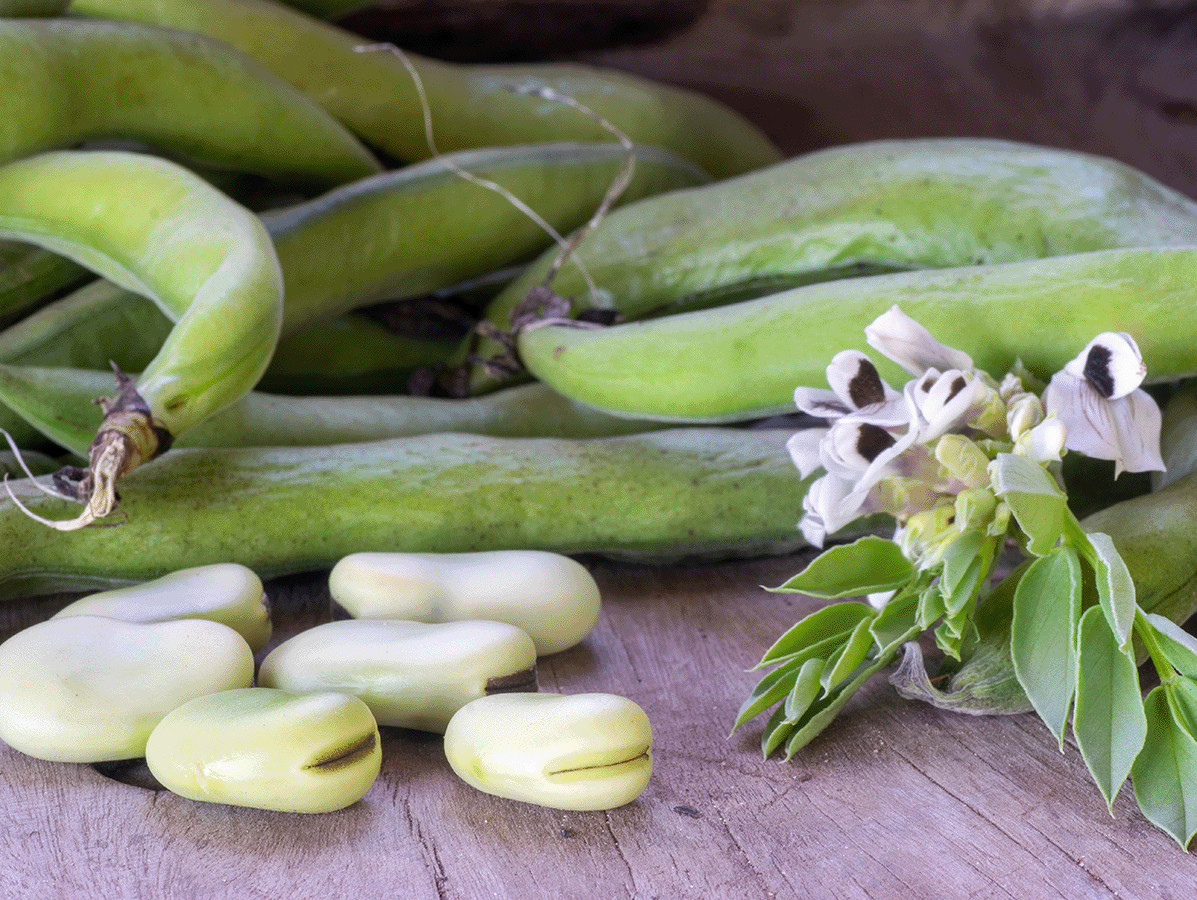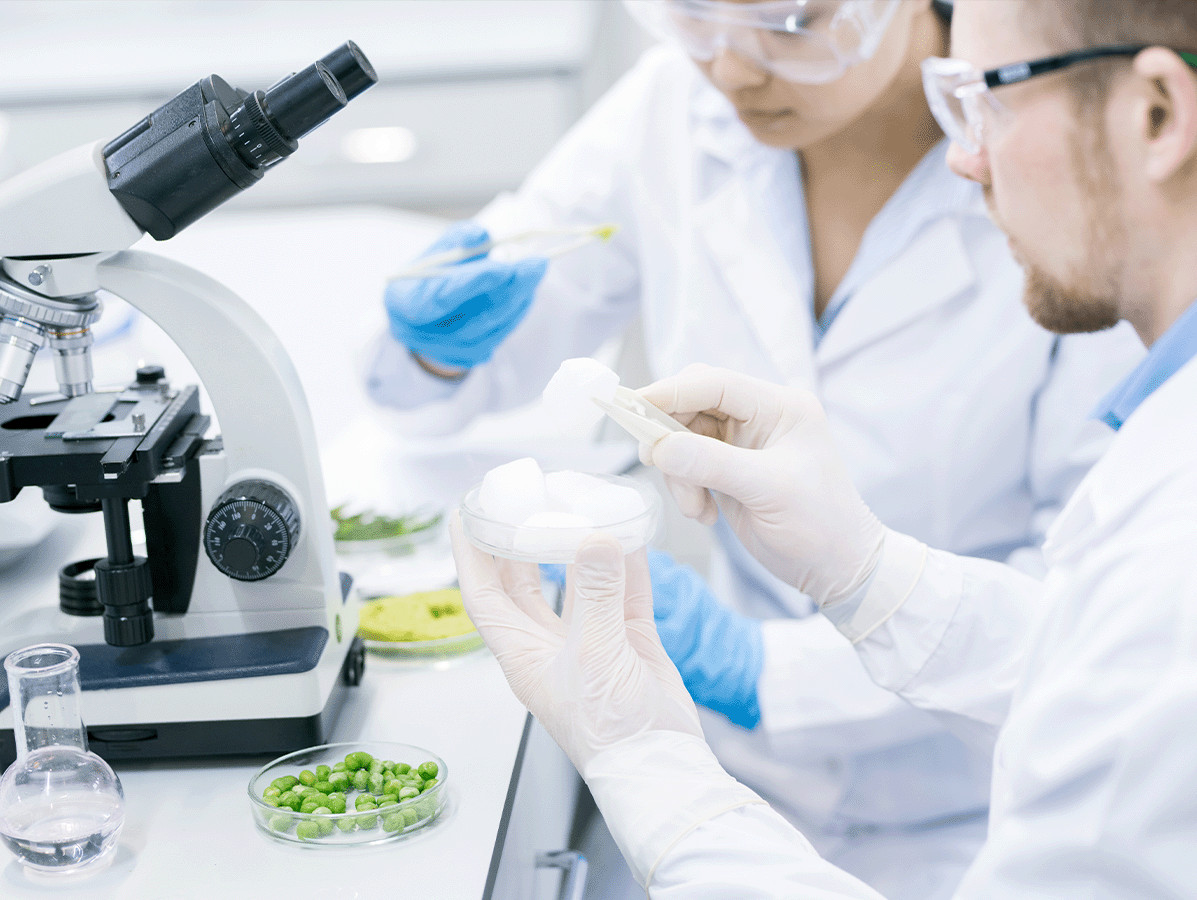
The protein transition is in full swing. Product developers and food technologists develop innovative ingredients and sustainable products: fantasy becomes reality. But ... how fantastic are they really? How can you keep track of them? And where do you find all these new ingredients and products?
The global market for vegan food is growing exponentially. Although most people are not (yet) eliminating animal protein from their diet completely, they are increasingly choosing "green" proteins, preferably produced in a more sustainable way. These flexitarians are looking for a substitute. They are looking for a product with a taste, bite and nutritional value similar to the piece of meat they are giving up (driven by animal love or concern for the planet). Their demands are the driving force behind most of the innovations taking the market by storm; a considerable challenge for product developers. Where do they find the ingredients to meet all these demands?
A digital search engine for sustainable food; now that would be convenient. Tim Piels came up with the idea in the summer of 2020. "I was reading 'Drawdown' by Paul Hawken. This book contains a compiled list of 100 effective ways to reduce climate disruption and CO2 emissions. A large part of it is about food," says creator and co-owner of the platform Green Food Finder. "The list gave me the idea of setting up an online promotion and sales channel for green, sustainable food ingredients and products. After all, by making different ingredient choices you can make an effective contribution to the climate problem." 'Green' is defined by using eight characteristics based on the 17 United Nations Sustainable Development Goals (SDGs). All ingredients and products found on the platform comply with at least two of these eight characteristics.
Recently, food technologist Loet Piels, Tim's father, started assisting him full-time in his ambition. With his 35 years of experience in the industry - until recently he worked for Solina - he brings a lot of expertise to the table. "On top of that, my father has a great network, and is trusted in the industry. Knowledge is key." Because father and son also want to trade ingredients and products themselves, they are in the process of obtaining the IFS broker certificate. Tim expects to have that completed in March 2023.
The biggest challenge now is filling the platform and finding the right representatives. Tim: "What makes it difficult is that suppliers often work with regular distributors who represent their ingredient or brand for years. They are often bound by contract. So they can't just start offering their ingredient elsewhere. We are therefore mainly looking for suppliers who do not yet have a representative office in the Netherlands and for smaller suppliers who can use our help in marketing their product or ingredient. With our knowledge of ingredients and our network, we will bring supply and demand together in order to help make the food market greener. On the platform greenfoodfinder.nl we can find, among others, the Bulgarian Europack with their brand Suntein and the Dutch company Multiflour. Who are they? And what do they have to offer the industry?

Suntein is a brand, owned by Europack - producer of hulled sunflower kernels. Their 6 state-of-the-art factories, based in Bulgaria, are BRC/IFS certified and operate 24/7. One of the facilities is exclusively dedicated to the production of Suntein, a sunflower protein. It is a functional 51% plant-based protein which can be used in a wide variety of applications to enhance nutritional value to meet today’s market demands. This is used in meat and milk alternatives, vegan chocolate, sports nutrition, energy bars and pastas, among other things. The production process is simple and 100 percent pure, explains owner of the company Vasil Vasilev. "We peel and crush the sunflower seeds, press them, and extract the oil. What remains is a flour. Because we don't use chemicals and water in the process, all the lecithin found in sunflower seeds stays in the flour. This results in a protein content of 51-52%. Unlike with beans, we don't have to do anything to eliminate or mask a bitter aftertaste. Our flour tastes mildly of sunflower seed and almost everyone likes it."
"That's good," Vasil explains. He explains: "Sunflower protein is a very good emulsifier. It has good solubility, water-holding capacity and fat-binding capacity."
"There is always sufficient supply, therefore our price remains stable. We buy locally as much as possible. "
"In my opinion, that is a farce, a panic reaction," Vasil believes. "Four months after the invasion, the price of sunflower seeds is even lower than before, there is no scarcity."
"We make a product with a good story!" responds Vasil enthusiastically. "In terms of philosophy and functionality, it is the best protein at the moment. From the residual material we produce biofuel in the form of pallets; that is used by local households and industry in Bulgaria."
"By no means all plant-based products are sustainable. When I look at how pea isolate is often made now, I do question that method of production. Yes, it yields a product with a high protein content, but that only works with solvents and a gigantic amount of water. Madness, in my opinion. We need to be more economical with our planet, in all areas. A sustainable agricultural protein production is one of the solutions. It can be enough to feed the world. It can! But it's an arduous transition."
His statement is confirmed by Stacey Pyett, program manager of Proteins for Life at Wageningen University & Research. She and colleagues recently compiled a protein atlas based on data from the world food organization FAO. This contains data on the annual production and consumption of protein in every country in the world. It finds that enough protein is produced to feed the world. The production of plant proteins alone is sufficient for that.

Multiflour is a trading company that supplies raw materials for new food concepts. It once started with old grains and pseudo-grains such as quinoa and millet, then expanded to include pulses and vegetable proteins from residual flows from the human oil press industry, including sunflower protein as described above.
René van der Veen, Multiflour's anchorman: "We make and trade protein meals from field beans, chickpeas and lentils, and from seeds such as sunflower, pumpkin and rapeseed. We focus on medium-sized companies that want to become more sustainable and grow along with new protein raw materials."
René: "A new vegetable protein concentrate based on Faba beans, with a high protein content of 60%. It is highly suitable as a protein source for meat substitutes and an excellent alternative for soy. Soya is easier to structure than field beans, however. In order to approach the structure of meat as closely as possible, we would actually need to add a little wheat, to achieve the best amino acid balance. But then again, people don't want gluten." The plant protein contains all 11 essential amino acids. "We have been working on it for two years, innovating and developing the concept. Now it is ready for the market. We use no additives, the production process is clean label, the texture and bite are right and the taste neutral."
"Fortunately, there are solutions for that," laughs René. "We do it with an enzyme. We have deliberately chosen to make a concentrate, although with an isolate you have much less of an aftertaste. Often an acid is added to get the last bit of protein from the raw material. The protein content of an isolate is therefore higher, the taste more neutral, but it takes more energy to extract the protein and you use a lot of water."
"The cultivation of our field beans, without nitrogen fertilisation, takes place in the EU. We have it produced by a partner in the Benelux. The production there is based on dry extrusion. We think this is more sustainable than the wet process, because not only is a lot of water needed, but the product also has to be cooled first, and then heated again. None of that is necessary with the dry process."
"It is good, but it could be better. When the market expands, the price will drop, as it did with soya. Then, of course, we will have to scale up: throughout the chain. This will require a lot of investment. It will happen step by step. I do not see any problems for the cultivation in Europe, but the processing will be a challenge: is there sufficient capacity in Europe to extrude everything?
"I consider many meat substitutes on the shelves to be dry. To prevent that, we have involved a chef in the development of our product. More attention must also be paid to the nutritional value of plant-based products; to fibres, for example. These are essential. We are going to take that fact into account more when developing our products. Because to be honest: at the moment we are all eating too little fibre and too much protein in Europe.

Are there any other food safety risks associated with the new ingredients that are now coming onto the market? During a well-attended FoodMicro symposium in June this year, scientists, food technologists and producers discussed exactly that question. A reassuring note came from Mieke Uyttendaele, Prof. Dr. Ir at Ghent University - Department of Food Safety and Food Quality. "Vegetarian and vegan food has been consumed worldwide for centuries and not many outbreaks have been reported within these product groups. So I am quite confident. Moreover, vegetable products such as burgers, drinks and spreads that are now on our supermarket shelves have often been heated or treated in another way." Her conclusion: "There are no more or less food safety risks associated with plant-based products than with animal equivalents." She made one important comment: "Young start-ups are often not trained to deal with food safety issues thoroughly. That poses a certain risk."
However, the risks associated with so-called 'novel foods' are often unknown. Food that was not commonly eaten in the EU before 15 May 1997 may therefore not be sold just like that. For example, cultured meat, insects and products and/or ingredients that are isolated or grown from animal or plant material (such as mealworms or juice from cocoa pulp) or from micro-organisms, fungi or algae. Such products are subject to the 'Novel Food Regulation' that has been in force since 1 January 2018. A new food or ingredient is only authorised in the EU if it has undergone extensive scientific and political scrutiny. Only when the European Food Safety Authority (EFSA) has given its approval to the dossier may the product be marketed in Europe [1].
Last year, Fair Insects (a Protix company) obtained the much desired approval for its novel food dossiers for dried mealworms, crickets and field grasshoppers. Protix processes these insects into frozen and dried ingredients for use in, for example, cereal bars, meat products and dried pasta. New dossiers, for example for the black soldier fly, are in preparation.
Wim de Laat, founder of The Protein Brewery and a speaker at the Food-Micro symposium, is not yet ready. He calls the process of the Novel Food legislation 'difficult', but expects to receive approval from the EFSA for his innovation 'Fermotein®' by the end of this year. Meanwhile, the start-up is confidently building a demo plant with a production capacity of thousands of tonnes per year. Fermotein is a single-cell protein (SCP) obtained through the fermentation of carbohydrate-rich food crops such as sugar beet, cassava, potatoes and maize. "The result is a plant-based ingredient with excellent nutritional value," he says. "It contains as much fibre as protein and a high concentration of essential amino acids. Thanks to its water-binding properties and the presence of unsaturated fat, products made with this protein are less dry and have an attractive structure. It has no aftertaste, and is not chemically treated or further processed." The amount of Fermotein that the Protein Brewery says it can produce in an hour is equivalent to the meat of 10 cows. "On an annual basis, you're talking about about 80,000 cows that don't need to be part of the food chain."
Conclusion: the building blocks are taste, mouth feel and nutritional value, the foundation remains guaranteeing food safety. Those who want to be found prefer not to invent fairy tales around their product or ingredient. They simply tell their fantastic story about local, scalable and efficient processes. And let's face it, that reality is often crazy enough.
[1] Click here for a list of authorised novel foods
Photocredits in order of appearence:
© nepool/Shutterstock.com
© Nature energy/Shutterstock.com
©Gaston Cerliani/Shutterstock. com
© SeventyFour/Shutterstock.com
Source: Vakblad Voedingsindustrie 2022